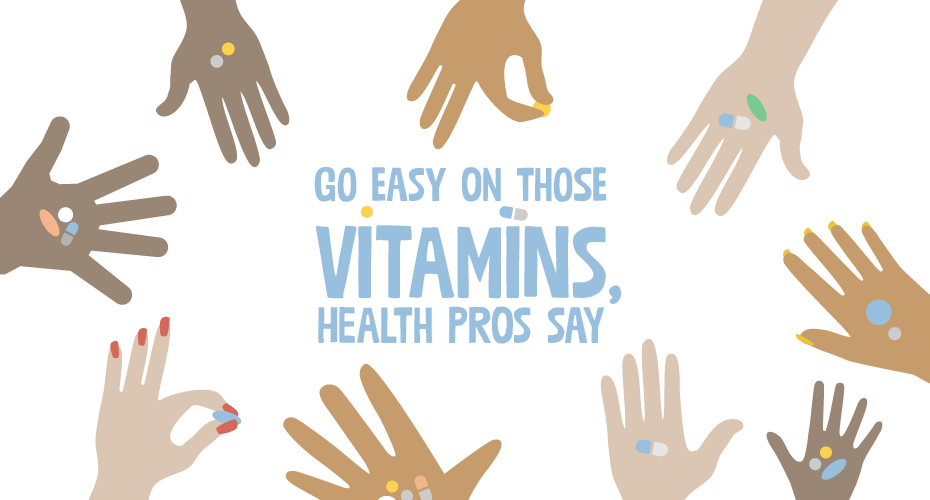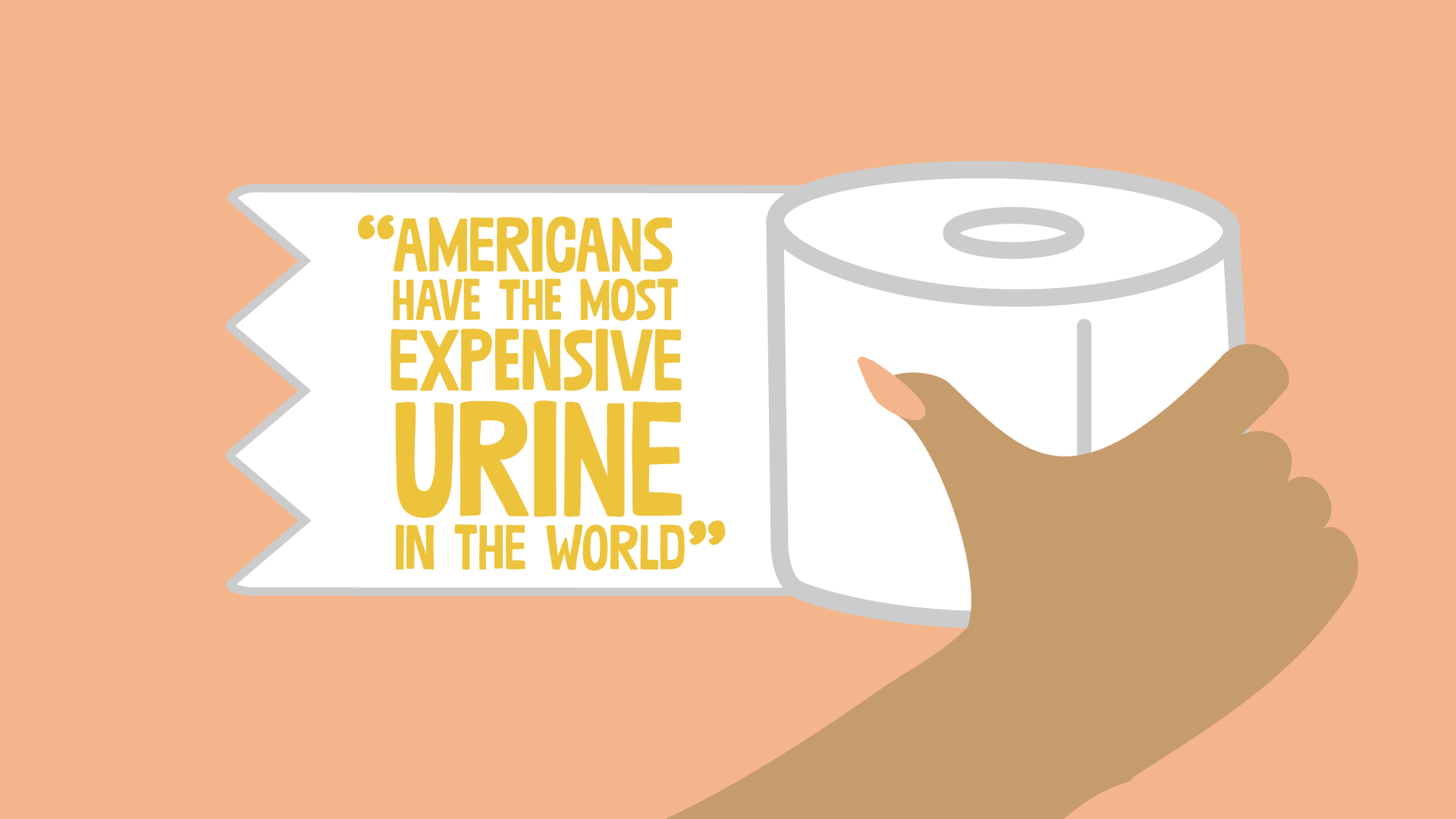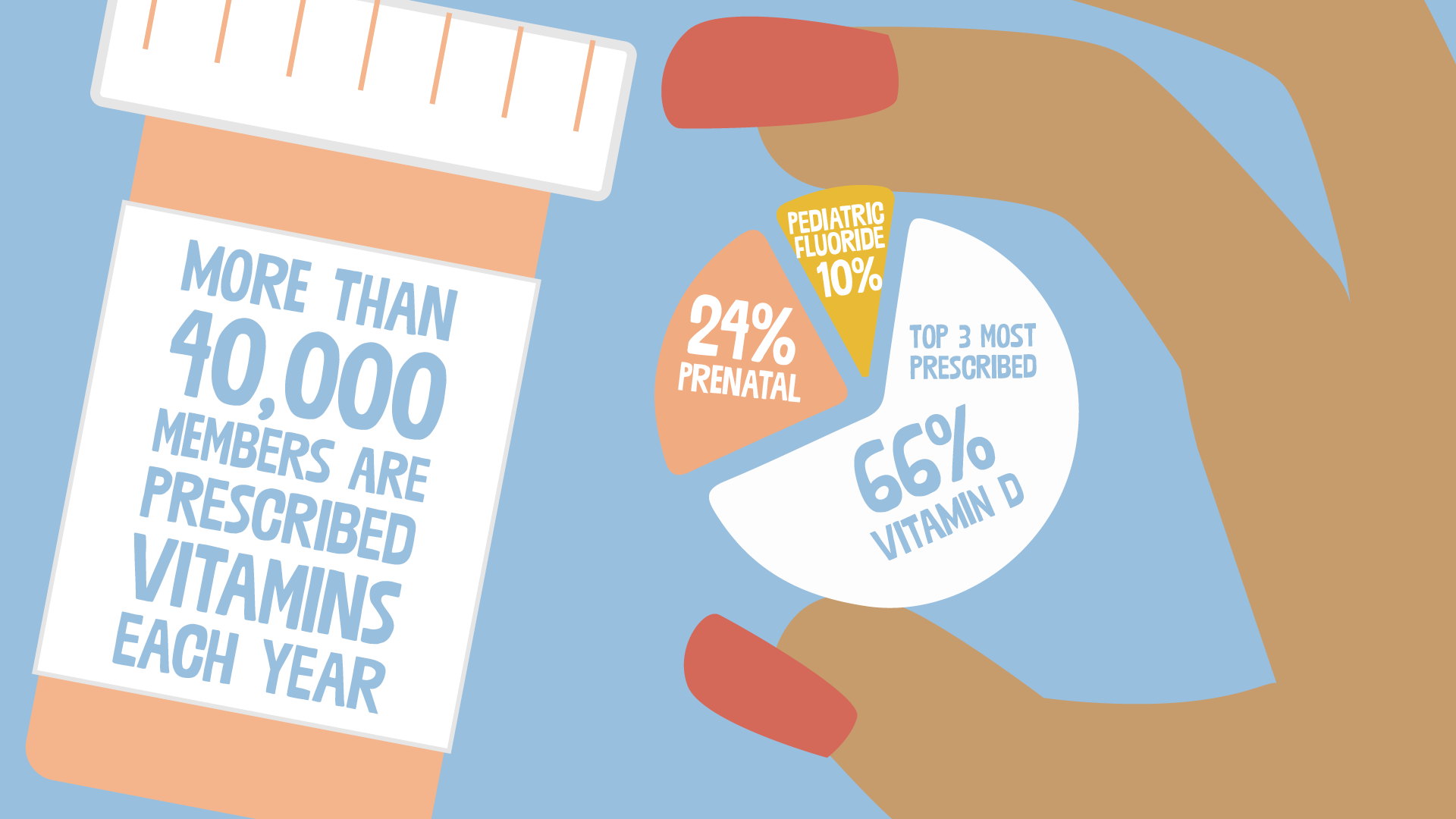Sep 5, 2019
What you need to know about vitamins
Confused by the multibillion-dollar vitamin industry? You’re not alone! Three out of four Americans take vitamins, according to an industry trade group, and they can provide essential nutrients for some. But too much of a good thing can be harmful -- and many wind up literally flushing all those pills away.
"The vitamin industry is millions and millions of dollars in the U.S., it doesn't substitute for eating well," said Nancy Dowling, a registered dietitian with Blue Cross Blue Shield Massachusetts. "You can't single things out. When this comes up, very specific recommendations are what people are looking for. People want it to be easy but it's the whole package."
To function properly, the human body needs 13 essential vitamins – A, C, calcium and folic acid, among others – along with minerals such as iron. All of these are available in food, or in vitamin D's case, sunlight. Most nutritionists agree that a healthy balanced diet will provide enough vitamins for the average person.
When you take excess vitamins, the body works harder through the liver or kidneys to get rid of that surplus, Dowling said
While that makes extra work for those organs, some vitamins, like C and B, are water-soluble. They’re easily stored in the body and excreted when they're over-capacity.
In other words, those multivitamins will just wind up in the toilet, said Dr. Joan Salge Blake, a nutritionist and associate professor at Boston University.
"Americans have the most expensive urine in the world," she joked.
More serious are vitamins that are stored in fat, which can accumulate over time and lead to toxicity. Some supplements contain more fat-soluble vitamins than food does.
Someone who eats too many carrots, for example, will consume too much water-soluble vitamin A and possibly see the unfortunate side effect of their skin turning orange. But vitamin A taken through supplements can get stored in the liver, potentially leading to vomiting, headaches and liver damage.
That means people trying to improve their health by cramming in even more vitamins and food supplements can see the opposite result, warned Carolyn Chu, a dietician with Blue Cross Blue Shield Massachusetts.
"People eat vitamins with energy bars, they're now getting all these added supplemental vitamins to their diet, and fat-soluable vitamins can lead to toxicity much easier than other ones," Chu said. "If you're adding one thing onto another, your poor liver is screaming at you, 'Please stop! I'm here to help you but I can only take so much!'"
"We used to have to worry about people taking too little [vitamins]," Blake added. "Now, dieticians are in the business of prevention and protection. We have to protect the consumer from things not based in science or overdoing supplements."
No substitute for eating right
The vitamin and supplement industry is worth billions of dollars. The trade group Council for Reasonable Nutrition estimates that three out of four Americans take vitamins and supplements every year.
According to Blue Cross Blue Shield Massachusetts data, more than 40,000 members have prescriptions written for vitamins each year. More than 28,000 members have prescriptions for vitamin D – helpful for some at-risk populations, particularly adult women -- and more than 7,000 receive prescriptions for prenatal multivitamins, such as folate, which has been shown to be helpful for pregnant women. B12 is another relatively common prescription, following some gastric surgeries. Officials said the percentage of total members receiving prescription vitamins has been relatively stable in recent years.
While those supplements may be necessary for some people, they're no substitute for eating right, health professionals say.
"No backup research says that if you have a terrible diet and take supplements, you'll be OK," said Blake. "Having an unhealthy diet with a supplement on top of it will not serve you well. Other compounds in the food itself are needed."
Vitamins aren’t a cure for people who have a nutrient-poor diet or who live in a “food desert” without access to fresh fruits and vegetables, agrees Desiree Otenti, a nurse practitioner and associate director of medical policy at Blue Cross Blue Shield.
If you don't get enough sleep, drink enough water, eat the right foods and exercise, there's nothing you're going to take that improves health, beauty, functioning, you can't counteract a bag of Doritos with a vitamin."
"If you don't get enough sleep, drink enough water, eat the right foods and exercise, there's nothing you're going to take that improves health, beauty, functioning," Otenti said. "You can't counteract a bag of Doritos with a vitamin."

A small number of people can’t get their daily requirement of nutrients from a healthy diet, Blake said. A lactose-intolerant person might be deficient in calcium, for example. Nutritionists recommend that women considering pregnancy take folic acid supplements to prevent birth defects. People over 50 don't absorb B12 as well as younger people.
But before taking vitamins, consult with a doctor or nutritionist, said Dowling of Blue Cross Blue Shield.
"If someone said to me, 'I take a nutrient supplement,' I say, 'Have you asked your doctor?'" she said. "A lot of people are very, very passionate about their choices in terms of taking supplements but that is a conversation, truthfully, to have with doctors."
Vitamins may be popular, but health benefits require more study
Vitamins and mineral supplements might reduce your risk for serious health problems, but any bold claims require more study, a veteran researcher said.
"Despite a lot of flashy news stories, we still don't generally know the benefits or risks of many supplements," said Dr. Howard Sesso, a doctor at Brigham and Women's and an associate professor at the Harvard School of Public Health.
Sesso is currently working on the COSMOS trial, which is looking at the effects of multivitamins and cocoa flavonal supplements on 22,000 men and women drawn from across the country.
The study is building on the Physician's Health Study II, which studied 15,000 male physicians between 1997 and 2011. That research showed an 8 percent reduction in cancer and cataracts for men taking a multivitamin compared to a placebo.
Even though the study looked at a large number of people over a long period of time, it still doesn't show definitive effects, Sesso said.
"There's an interesting psychology that underlies all this,” Sesso said. “If you take a supplement to prevent an illness, like cancer and you don’t get cancer, you’ll believe the supplement had something to do with it, whether it's true or not.”
In the COSMOS trial, he added, many participants are unwilling to stop taking their multivitamins because of how that might affect their health “even though [the study] is about how we don't know how effective multivitamins are."
Shorter studies are important to keep moving research forward, Sesso said, but longer trials are needed to back up those findings. He cites the Physician's Health Study II, which looked at the effects of Vitamin E supplements as well as multivitamins.
"Vitamin E back in the ‘90s was the hip supplement. Lots of people took it because of strong evidence in observational studies and short trials that it might have benefits with cardiovascular problems and cancer," Sesso said. "But we eventually found that those potential benefits were basically incorrect. E neither helped nor hurt."
PHOTO BY MICHAEL GRIMMETT
GRAPHICS DESIGNED BY STEPH PAULOVICH



